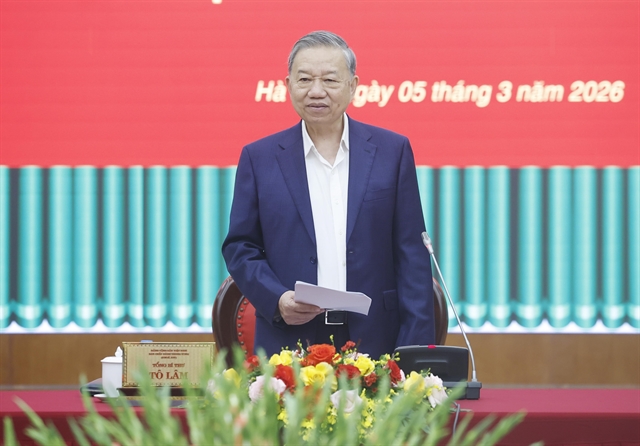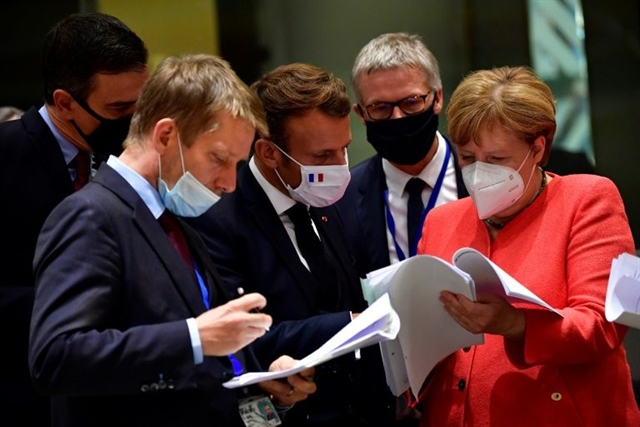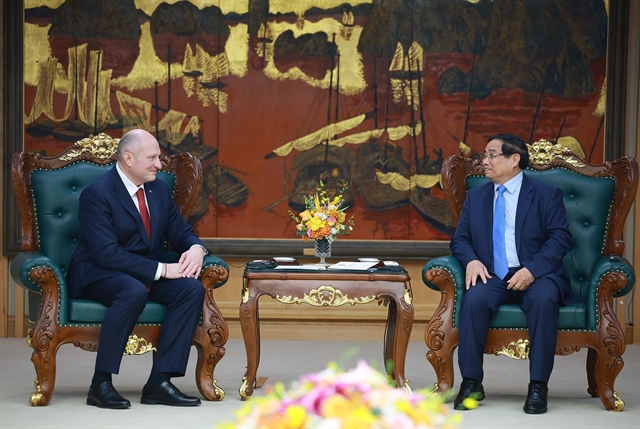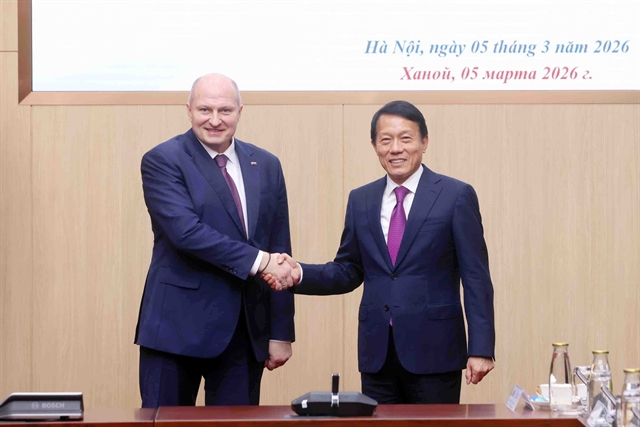 World
World


|
| EU member states Hungary and Poland often come under fire in Brussels for allegedly undermining European legal standards and democratic values. — AFP/VNA Photo |
BRUSSELS — European leaders have reached a summit compromise on the question of whether EU funds can be withheld from a member state that breaches legal norms, officials and diplomats said on Tuesday.
Hungarian media close to Prime Minister Viktor Orban's government, which is facing an investigation over its drift into authoritarianism, hailed it as a "great victory" at the Brussels talks.
But a spokesman for Germany's Chancellor Angela Merkel would not confirm their claim that she had promised to bring the probe to an end during her country's EU presidency – before the end of the year.
EU member states Hungary and Poland often come under fire in Brussels for allegedly undermining European legal standards and democratic values.
If Orban had wielded his veto at the summit, the bloc's 750-billion-euro coronavirus economic rescue package and trillion-euro seven-year budget would have been on hold.
"Hungary has declared itself willing to take all the necessary steps in the Article 7 procedure so that a decision can be reached in the Council (of member states)," said government spokesman Steffen Seibert.
"The German presidency of the Council has agreed to take this process forward in the limits of its possibilities," he said.
It had been proposed before this week's summit that all EU funding be cut for countries that fall foul of the union's procedure, named after Article 7 of its treaty, which can lead to a state losing voting rights.
Poland and Hungary had threatened to veto any linkage between funding and rule of law but, as the talks continued through a fourth night, a draft deal emerged that appeared to have broader support.
According to the plan, any cuts would have to be approved by a qualified majority of the EU Council, which represents member states.
This would require a vote of 55 percent of the EU countries representing 65 per cent of its total population, which would make it easier for targeted governments to build a blocking minority.
The EU Commission started the unprecedented Article 7 proceedings in December 2017, initially against Poland.
In September 2018, the European Parliament then initiated such proceedings against Hungary as well.
But the hurdles for sanctions are high, and an eventual withdrawal of EU voting rights is considered in Brussels to be the "nuclear option" in relation to member states.
The EU governments therefore took no further steps. — AFP




